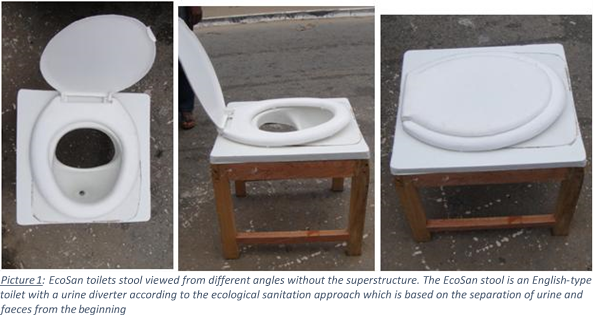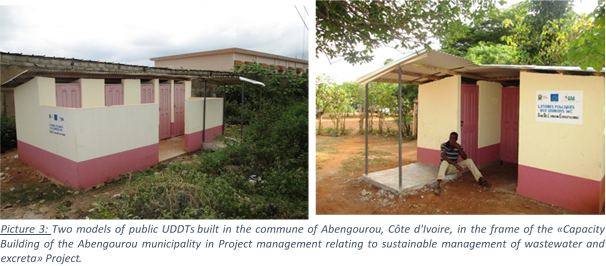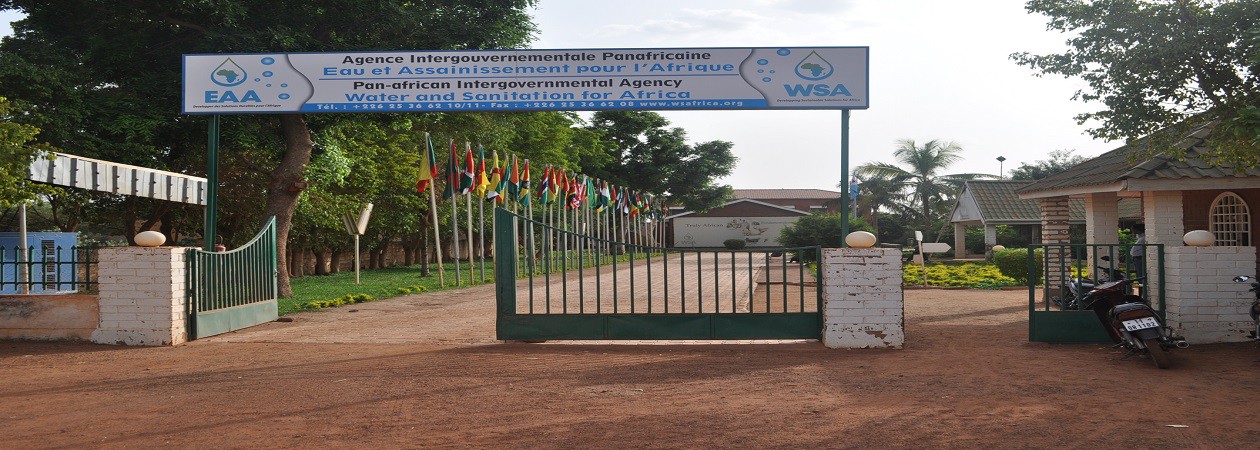World Toilet Day (WTD) is celebrated every year on November 19th. Initiated by the UN since 2001, this day is much more focused on advocacy than celebration and on drawing attention on the urgent need to provide every individual with appropriate toilets. Unfortunately, this November 19th seems to be a carbon copy of the previous ones; just as in past years, this WTD comes as the sanitation sector still faces huge challenges.
Figures stand at 2.5 billion or 1/3 of human beings on this planet who continue to be denied the right to sanitation. Hence the appeal to all stakeholders to intensify efforts to meet the challenge as soon as possible
The Pan African Intergovernmental Agency Water and Sanitation for Africa (WSA), from its creation, endorsed the challenge and joined the global mobilization for adequate sanitation for all, particularly in Africa. In its active role, WSA has initiated approaches and technologies which effectiveness is well established. And today WSA is still fruitful in innovation with new toilet technologies for the benefit of households within a wide range of social levels. ECOSAN toilets and UDDTs (Urine Diverting Dry Toilets) are amongst WSA well-known technologies. The discovery of these technologies was far from a spontaneous generation; historically, toilets have evolved from traditional latrines to UDDTs. Traditional latrines distinct drawbacks were noxious odors and the presence of flies otherwise named disease-vectors. The development of ventilated-pit toilets (VIP toilets) helped overcome these drawbacks. VIP latrines are equipped with technical devices such as vent pipes to allow air flow and odors venting thus preventing flies breeding.
ECOSAN toilets are mostly dry-pit toilets through the diversion of urine from feces during defecation. Hence, ECOSAN toilets do not require water and are greener. The separation of feces from urine makes it possible to recover waste by turning it into compost (excreta) or liquid fertilizer (urine) which can be used for soil fertilization after a six months sanitization process. While addressing the access to sanitation facilities, ECOSAN toilets also help respond to several other needs of health, agricultural, food and environmental order.
WSA, previous-CREPA (Regional Centre for Low-cost Water Supply and Sanitation) based in Ouagadougou is the renowned spawner of ECOSAN toilets which accessibility and practicability have been sufficiently proven in Burkina Faso. Subsequently, other organizations have recognized and supported this innovation and even recommended it as conventional toilets. This is the case of the European Union which did not hesitate to fund the scaling up of the ECOSAN toilet thus allowing its promotion in several regions, provinces, towns and villages of the country.
The popularization of ECOSAN toilets was promoted given the benefits derived therefrom, which explained the resounding success of ECOSAN latrines in areas where WSA built them. The provision of ECOSAN was also an opportunity to value feces and urine by using them as fertilizer and to take advantage of other benefits such as being hygienic and ecological, affordable, accessible, odor-less, more convenient, faster to build, more sustainable and profitable while ensuring better protection of groundwater. Other benefits of this new technology are their ease of maintenance and the reasonable investment cost which can be compensable by saving in fertilizers. On this matter CREPA estimated that Burkina Faso could save up to 72 million €/year if it manages to value the nutrients in human excreta of the entire population. While we recognize that this is not absolutely possible, at least it gives an order of magnitude of the maximum potential savings offered by this technology.
As we are celebrating the 14th World Toilet Day this year, WSA is ramping up its contribution towards a world where everyone has access and use adequate toilets. UDDTs are at an experimental stage in Côte d'Ivoire and this technology model offers the same benefits as ECOSAN but especially allows a clear link between sanitation-agriculture-environment-energy. In addition to the comfortable and hygienic setting UDDTs offer beneficiaries/users, it favors a maximum value of collected urine through an operational system of collection, storage, treatment, discharge and disposal in composting areas. The manure drawn from this process is used as fertilizers and has already yielded conclusive results in Côte d'Ivoire where gardeners and corn producers are delighted with their harvest.
Making toilets accessible to all is no utopia for WSA; it's just a matter of providing the means in terms of research-action, technological innovation and implementation of consequent projects. That is why the Pan-African agency invites key players to greater efforts and to be open to partnership and collaboration. WSA also appeals to its traditional partners to renew their trust and donors to open their purse strings, for the agency to put its experience and expertise at the service of the people by providing appropriate and adapted sanitation technologies. WSA remains convinced that, echoing Mr. LEE Jong-wook, former WHO Director-General, «Water and sanitation are essential to public health (...) once we can secure access to clean water and to adequate sanitation facilities for all people, irrespective of the difference in their living conditions, a huge battle against all kinds of diseases will be won». And that is the ground for the uprightness and strength of WSA action in the sanitation sector.
Illustrative photos






